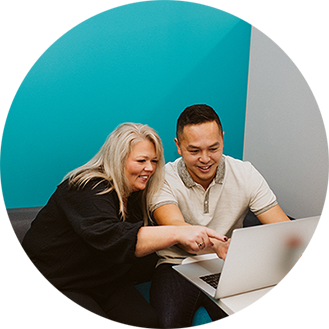
Understanding and navigating grief
Oct 10, 2021
ResourcesArcora
A leading provider in Canadian mental well-being (EAP), coaching and business support solutions. Un fournisseur de premier plan au Canada de solutions de mieux-être mental (PAE), de coaching et de soutien à la gestion.By definition, grief is the internal feelings we have — like deep sadness and loneliness, feeling lost and not knowing what to do with ourselves — and is most often associated with the loss of a loved one. But it’s not the only way we experience grief. Did you know that we can feel forms of grief for our community, for the world at large, or for the loss of a job, routine or identity. Considering the state of the world at the moment, you might be feeling this right now. And, if you are, know that it’s perfectly normal.
Here are a few things you can do, right now, to learn to embrace, manage and come out stronger on the other side of your grief.
Manage Your Feelings
- Get familiar with the stages of grief. Denial. Anger. Bargaining. Sadness. Acceptance. Know that the way we express these emotions, the rate at which they are expressed and felt and the timing of when these stages occur will be different for everyone.
- Acknowledge the feelings that come up. Regardless of the emotion you’re feeling, be sure to let it rise to the surface and acknowledge it. It’s always healthier to express emotions than bury them.
- Practice mindfulness. Think about what you have control over right now and mentally let go of what’s out of your control. Focus on your breathing. Taking deep inhales and exhales will help you stay in the moment. Also, meditation (even 10 minutes a day) can help ground you in the present.
- Seek professional help. Remember, accessing counselling has never been more important than it is right now—especially if you’re feeling overwhelmed by stress, anxiety and other mental health conditions like depression. Check to see if you have access to an Employee Assistance Program (EAP) as part of your health benefit plan (for you, your family and your staff) or what your plan offers for psychology benefits. If you don’t have an EAP, there are many free resources available too, like the ones on the Government of Canada’s mental health support page.
- Talk it out. Communicate with the people in your household, a family member or friend outside of your home or a trusted colleague. Chances are, you’re probably not the only one who’s feeling this way in your social circles. Opening up to others helps create stronger bonds, a tighter-knit community and support network.
What’s Next?
- Be patient. Be compassionate with yourself and those around you and give people some room if they’re not reacting to things or behaving in ways they normally would.
- Build resilience. In your household, set routines for your week to spend time together: times to talk about how everyone’s doing, times to get physically active and times to recharge your personal batteries. Listening, expressing empathy and showing compassion helps us respond to our loved ones with care.
- Find your joy. What activities really light you up? Is there a way to continue to do these while practicing social distancing? If so, continue scheduling them into your routine. And, if you can’t continue on with those activities in the same way, can you think of creative ways to continue to do them (or something similar) virtually?
Humans are resilient and experiencing and managing through grief helps us grow and cope in newfound ways. Remember, acknowledging your emotions, letting them out in healthy ways and through a variety of supports, will help you experience brighter days again.
Do you have employees on your team who may be struggling? Payworks understands the importance of the health and well-being of your workforce. That’s why we’ve partnered with Arcora to create HR Advisory Services, a comprehensive management tool of practical HR-related guidance, resources and services provided by industry professionals to ensure you’re supported every step of the way in growing a strong organization. This includes a confidential employee counselling referral, which provides private counselling to help get your team members back on track. For more information on HR, legal and financial guidance your business (and employees) can count on, visit: https://www.payworks.ca/solutions/hr-advisory-services.
These articles are produced by Payworks as an information service. They are not intended to substitute professional legal, regulatory, tax, or financial advice. Readers must rely on their own advisors, as applicable, for such advice.













